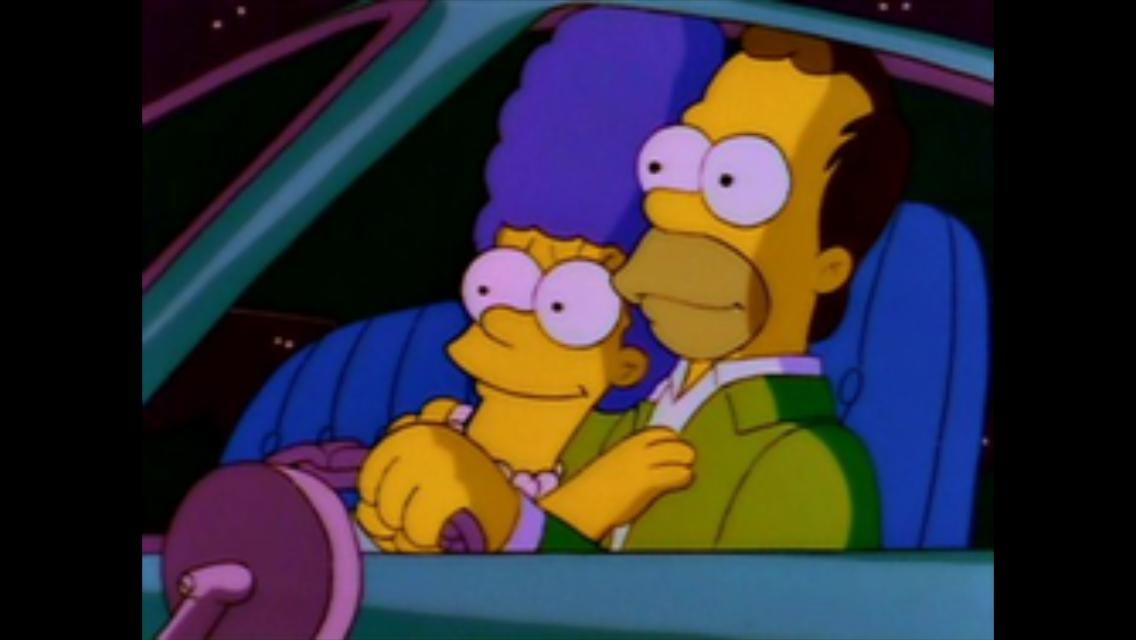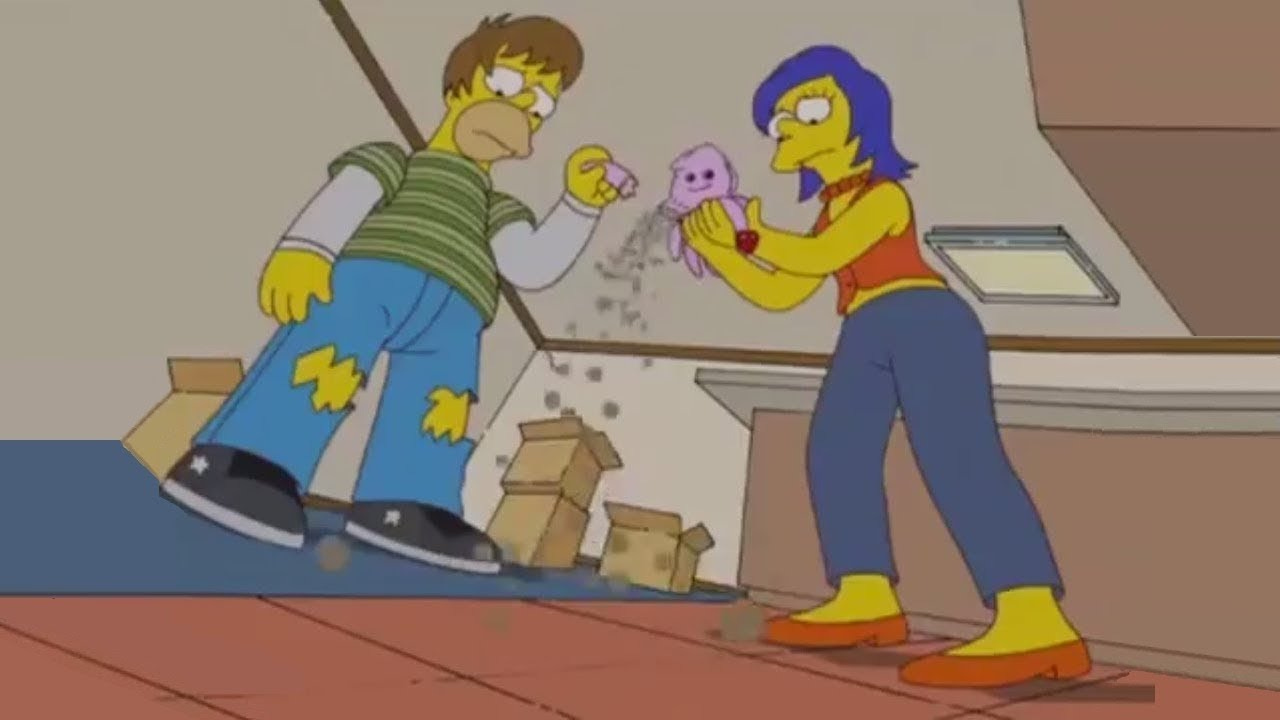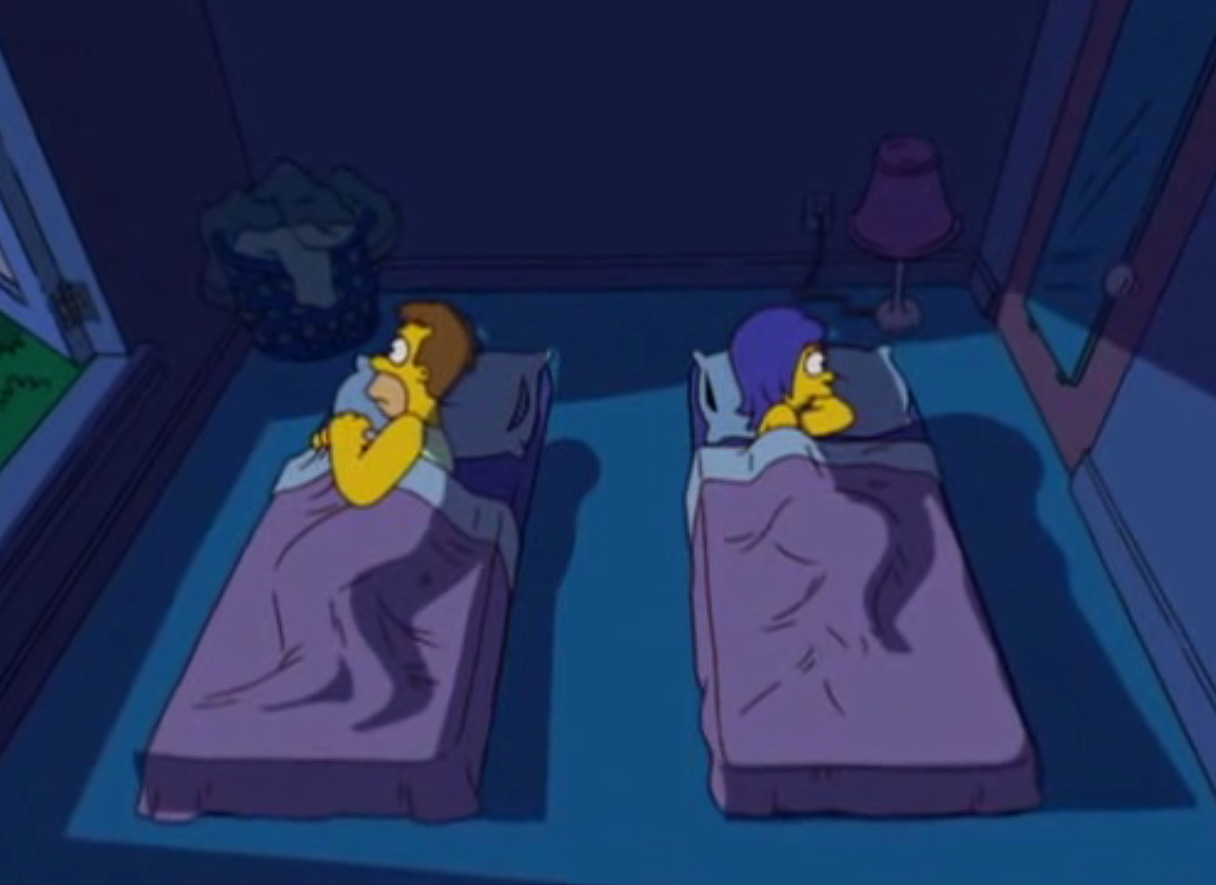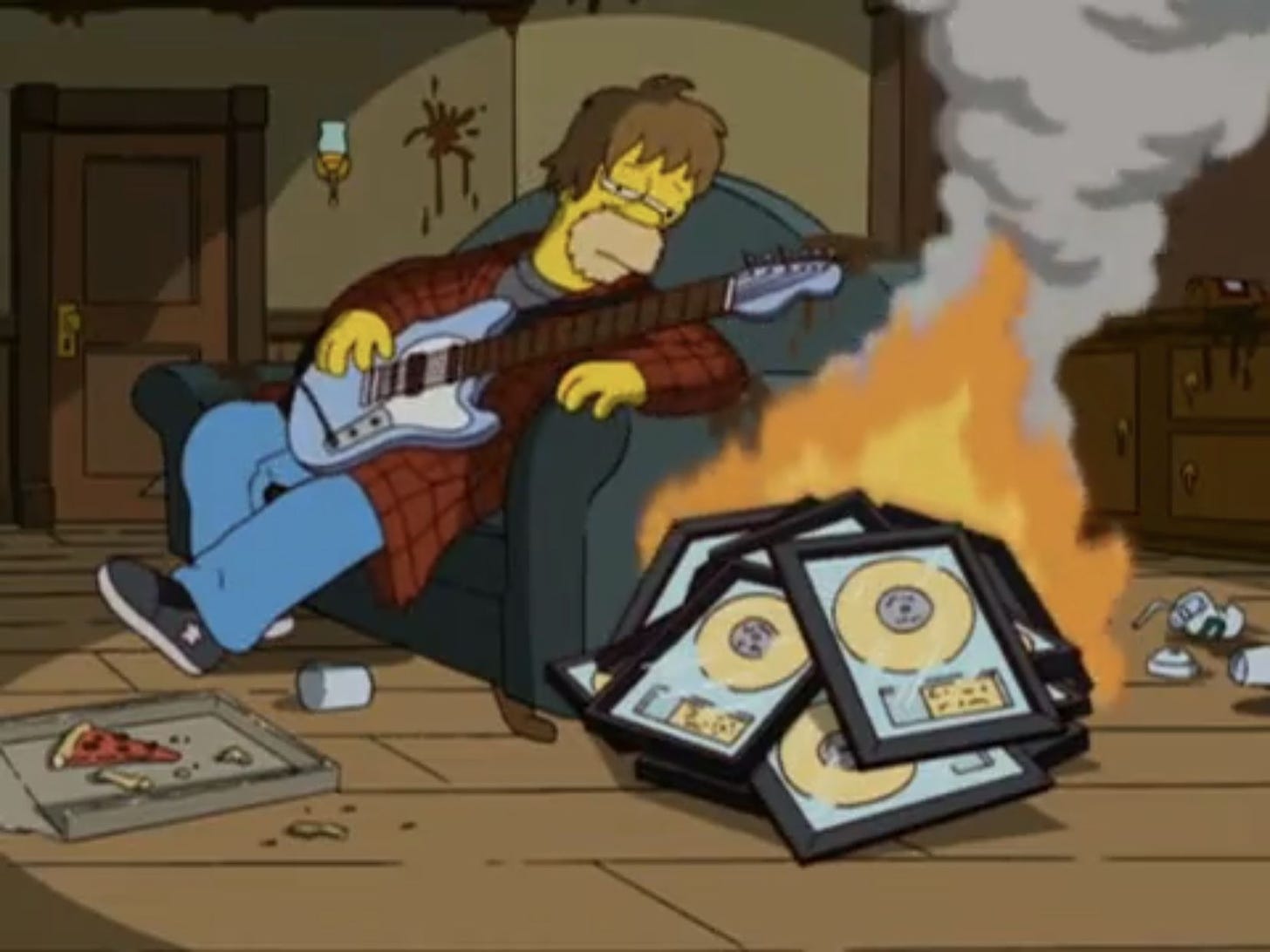The Simpsons: Why Fans Hate “That 90s Show” for All the Wrong Reasons
The episode fails for its story and humor, not for its retcons.
There’s something almost sacred about The Simpsons’ first three flashback episodes. The trifecta of “The Way We Was”, “I Married Marge”, and “And Maggie Makes Three” amount to more than mere background on the characters. They are, collectively, the story of how the Simpsons became the Simpsons.
At their core, these installments explain how two kids from the sticks found each other and, in the face of relatable challenges, built a rough-around-the-edges but undeniably loving family. The glimpses of the past they provide are an essential part of the fabric of the series, in how they define the special place Homer and Marge hold in one another’s lives, and how the kids who spurred so many of those challenges nonetheless make their lives brighter.
As I discussed on The Simpsons Show Podcast, the heart of those stories is more important than when they took place. Like so much popular culture of the time, The Simpsons reflects the childhoods (and budding adulthoods) of Baby Boomers. The original flashback episodes take place in the 1970s and 1980s, and there’s a reason for that. The events depicted come with a specificity born of the writers’ personal experiences.
But there’s also a universality to the recognizable plight and unsuspecting joys of the growing Simpson family in those episodes. The ways in which very different people can nonetheless become kindred spirits, that the daily grind can make providing your family the life they deserve seem like an insurmountable task, that new arrivals can delay your dreams but liven your days, go beyond any particular time frame.
Regardless, it makes sense that Simpsons fans raged at “That 90s Show”, a season 19 outing that dared to retcon the trials and travails of Homer and Marge to a time when The Simpsons itself was on the air. It is, after all, an awkward thing for a show to keep running for so long that its new past crashes into its old present.
That said, the series is perpetually set in “the present day”, much as Springfield is effectively “Anytown, USA”. So much the better to comment on the issues of the here and now without being tied down. But unlike with the Simpsons’ hometown, the show dropped anchor in a particular time period for Homer and Marge’s early years, which creates a certain dissonance and understandable resistance, when the show tried to remake their hallowed history with a grungier twist.
But the problem of “That 90s Show” isn’t, well, the 90s. It’s that instead of adding to the tapestry of Homer and Marge’s relationship like those early flashback episodes did, this later episode has nothing worthwhile to say. Even Matt Selman, who penned many of The Simpsons’ best post-classic episodes and would go on to showrun even more, can’t make hay out of this ill-conceived attempt to reimagine the couple’s past. The crime here isn’t shifting the Simpsons’ into the future; it’s changing their history without a story good enough to justify it.
Granted, the “Hey, it’s the 90s!” vibe of it all doesn’t help. As much as this outing means to be yet another bout of Marge/Homer relationship drama, it’s also an aimless series of stale gags about the pre-millenium period. Melrose Place existed. Seinfeld existed. Sonic the Hedgehog existed. Beanie Babies existed. Laser tag existed. “Closing Time” existed. The internet was slow. The haircuts were different. That's about all “That 90s Show” has to offer in the way of comic observations. The episode’s almost wholly lacking in any wit or insight in its effort to skewer the decade.
It’s not as though the golden years flashback episodes were lacking in contemporary pop culture references. Marge once cooed over M*A*S*H with her neighbors. Homer spoiled The Empire Strikes Back for a line full of angry moviegoers. But the humor in those episodes was of that time period, not about it. When this installment isn’t doing the usual “break up then make up” routine with Homer and Marge, it’s an aimless, amorphous series of 90s riffs with little to show for the effort.
Despite the hollowness of the comedy trappings, there’s something genuine and, dare I say, trenchant, at the core of “That 90s Show”. The conflict of the episode centers on Marge expanding her horizons at college while Homer remains stuck in a crummy job to fund her tuition. It leads the two of them to drift apart in a way that feels true to the characters.
When viewers met the pair in “The Way We Was”, Marge was a good student with a bright future. Homer, on the other hand, was a dunce who almost flunked out. It’s worth exploring how Marge’s intelligence and grander aspirations could have pushed her away from Homer’s general apathy and idiocy despite their mutual affection.
If you can set aside the corniness of the ubiquitous 90s bric-a-brac, there’s something real at the core of their conflict. The tension between Homer and Marge plays on longstanding town vs. gown divides and differences between the characters. A college education can change your perspective on what you want out of life. There’s an equal degree of pathos in the idea of someone working a menial job to fund their partner’s dreams, only to watch the fruits of their labor drive them further away.
The chance to overcome that type of strife could be just as rewarding. Explaining how a smart woman like Marge could nevertheless feel fulfilled by a dim bulb like Homer in other ways could pay dividends for both comedy and character, eventually affirming what keeps them together.
God help me, I even appreciate Professor August, the mercenary young teacher who woos Marge with trite truisms and self-satisfied bromides. He’s a good heel, cutting the image of a certain brand of faux-progressive bro who spits quasi-feminist pablum to pick up women. Hank Azaria plays him with the perfect smug tone, and “Stefane” makes sense as the bad guy here.
He is the opposite of Homer, not just in his level of education, but in his level of care and kindness for Marge. You can understand why a provincial “townie” like her might be drawn to his pseudo-intellectual spiel. And the audience can see through his B.S. and sense the crappy motives and power imbalance at play. He is infuriating, maybe too infuriating.
There’s just a few big problems with the whole thing. The first and biggest is that the episode rarely, if ever, plays any of this as real or recognizable. It features one conversation where Marge is excited about what she’s learning, and Homer is characteristically dismissive, which speaks to their growing schism. But from there, it’s all cartoonish interludes of Marge fantasizing about her prof while soothing her boyfriend’s laser tag burns, or Stefane needing whale songs to calm down, or for some strange reason, Homer becoming an ersatz Kurt Cobain.
That's right, it’s not enough to merely set this episode during the Clinton administration. The show’s arguably main characters must also become a grunge icon, thereby turning a down-to-earth problem into tepid rockstar nonsense.
I don’t want to fault latter-day episodes too much for implausible plot points. Homer once won a Grammy with his Beatles-esque barber shop quartet, after all. And hey, not for nothing, the grunge parodies feature some of the best spoofing in the episode. While lyrical efforts like “I’ll Make Rub to You” and “Shave Me” are pretty tepid take-offs, the creative team gets the sound of the era down perfectly, and has more success with parodies of other Nirvana and Bush songs. Hell, naming an alternative band “Sadgasm” may be the funniest bit in the whole episode.
But the catch is that there's little point to the extended homage. Worse yet, it eats up time that could be spent on justifying why Marge and Homer come back together in lieu of coopting the life of a man who killed himself for your tasteless attempt to generate cheap yuks. The thrust of Homer’s rockstar rise and fall is that he’s sad without Marge and still cares about her, something the episode didn’t need the Cobain pastiche to accomplish.
More than that, the problem the writers established was never that Homer didn’t care about Marge. It’s that their interests and wants in life were diverging. “That 90s Show” never truly resolves the issue. Marge never realizes that Professor August is full of hot air and bad intentions. He’s just mean to her one time and that's the end, something the episode itself maddeningly spotlights as painfully flimsy. Homer never makes an effort to take an interest in Marge’s new intellectual pursuits or even accept her new perspective. He’s just bummed when she leaves.
There’s something to be said for the abiding love between two people trumping any differences in taste or temperament, but this episode never does the work to get there. Instead, it dives into a hollow send-up of the Seattle music scene, slaps Homer and Marge back together via a godawful heroin/insulin/frappuccino fake-out, and calls it a day. When the old flashback episodes threw obstacles in the couple’s path, the writers would earn their way past them. That's why those stories are so heartening and indelible in the Simpsons canon, and why this slapdash reconciliation in the shadow of legitimate issues feels so cheap, regardless of the decade when it’s set.
Maybe the temporal queasiness of this whole exercise was a sign the show had gone on too long. The later a television series runs, the more it inevitably drifts away from the original conception and the environment in which it was made. The Simpsons’ nuclear family, the life Homer and Marge could scratch out for themselves with three kids in the suburbs, the humor the creative team could wring from life in the average American town, made sense in 1989 in a way it didn’t in 2008, let alone in 2022. Maybe the bizarreness of Homer becoming a cultural sensation in-universe at the same time he was a cultural sensation in the real world should have been a wake-up call -- it was time to pack up shop and direct these creative energies toward something new.
But fans focus on the wrong problem with “That 90s Show”. The Simpsons’ continuity has always been loose. There’s ways to live with a floating timeline. The grand sin here isn’t changing the date on the calendar for Homer and Marge as a young couple, or even the feeble array of gags about the age when, as Futurama once put it, “They cracked the human genome and boy bands roamed the earth.”
It’s tarnishing that nigh-sacred trilogy of tales about Our Favorite Family becoming, well, a family, by association with this junk. It’s squandering the opportunity to affirm the special connection between Marge and Homer, to vindicate the love that sustains them despite their differences, in favor of an empty grunge parody and arbitrary solutions to actual relationship problems.
There’s a reason why fans cherish those older episodes, which stretch beyond their setting or the cultural moment they capture. It hinges on the way those stories complete the Simpsons, give them genuine struggles, and make us care when they ultimately find happiness despite their hardships. You could tell a funny, relatable, cathartic story of how and why two people belong together in any era. The problem with “That 90s Show” isn’t the era; it’s the story.
Odds and Ends
As couch gags go, the riff on surrealist painter René Magritte’s famous This Is Not a Pipe piece is a winner, so maybe the show should concentrate on spoofing 1920s culture instead.
As a supercilious nerd, I never tire of the show poking fun at supercilious nerds like me. So Comic Book Guy’s overconfident declaration that the Lord of the Rings trilogy could never be filmed got a laugh out of me.
For all the frustrating breaks in continuity here, it’s a nice touch that Marge’s big project in her “Protest Studies” class harkens back to her talents as an artist first explored in “Brush with Greatness”.
Homer’s acronym for “G.R.U.N.G.E.” is painfully unfunny, but the Back to the Future tribute, via a cousin named Marvin Cobain, is a cheap but effective gag.
Many of the jokes here feel dated, but man, the “We’ll never have a worse President” line hits even harder now than it did then.
The biggest saving grace of “That 90s Show” is the cameo by, and loving tribute to, a man who’s leagues better at spoofs and parodies than anything we see in this episode. “He who is tired of Weird Al is tired of life.” Amen.








